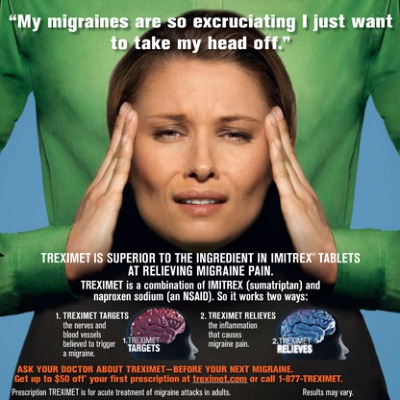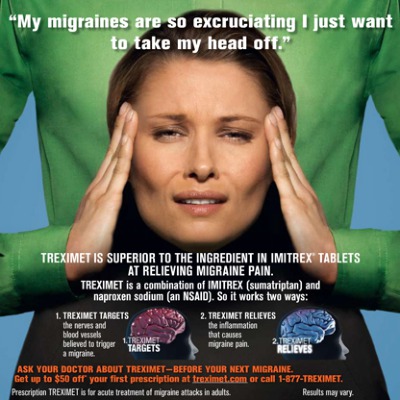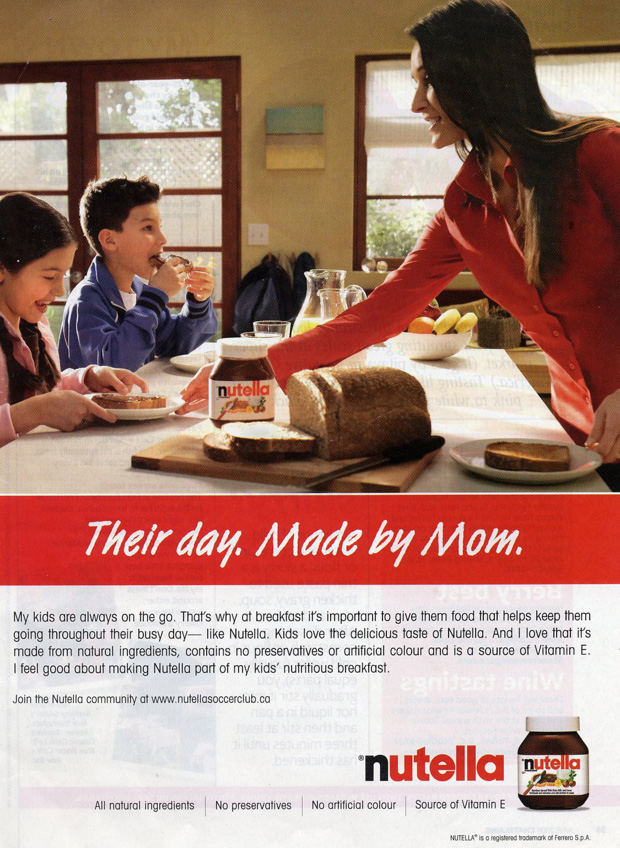The traditional format of advertising (i.e. impossibly good-looking actors pretending to be happy because and only because they use Brand A toothpaste or eat Brand B breakfast cereal), is inherently ridiculous. It’s so incredibly transparent—imagine a perfect stranger approaching you on the street. Maybe it’s a woman of about twenty-five years of age, with two teenage children (what?!). They’re laughing and holding a jar of Nutella, and when they (Wow! Didn’t see you there!) spot you staring at them, the woman flips her hair and says in a silky smooth voice, “With Nutella brand chocolate hazelnut spread, I can get paid to pretend I gave birth to these mini adults while promoting a jar of frosting as a health food!”
We’re not fooled: we all know that the actors and actresses are not partaking of the featured products nearly as much as the commercials would have us believe. But that’s just a normal function of a consumption-oriented society. What really baffle me are the advertisements for things like Nicotine patches or prescription drugs that portray healthy actors pretending to have life-threatening addictions and ailments. If I’m a heavy smoker, am I supposed to be sold on a product because a young man in the prime of health tells me confidently, “I want this time to be my last time”? Or maybe I’m supposed to be convinced that the man frolicking with his “wife” on a hammock has been cured of the erectile dysfunction he never suffered from, as a voice over rattles off a list of the drug’s side effects. Burning sensations, suicidal thoughts, and cancer are small prices to pay for the transformation of your sex life into a montage of smiles and sunshine bouncing off hi-definition blades of grass.
This got me interested in the actor’s point of view. How does one get into character for a condition one doesn’t have? Is it like Eddie Redmayne preparing for his role in The Theory of Everything, visiting ALS patients to teach himself how to play Stephen Hawking? My guess is that even if most actors don’t go to Redmaynesian lengths to immerse themselves in their characters, it’s not as simple as just showing up and reading the script. With this in mind, I’ve put together a few suggestions for you to prepare for your next audition for a once-was-sick-and-now-am-well role.
Tip 1: Always try out for a part significantly older than your own age.
Tip 2: Make sure you can transform in slow motion from a resigned, tired-looking frown to a brilliant smile. Practice makes perfect, my friends. Start by buying some Crest brand teeth-whitening strips.
Tip 3: You should have a variety of sighs in your repertoire. Weary sigh, depression sigh, exasperated sigh, relieved sigh, anticipatory sigh, and wow I can finally inhale deeply without gagging on pollen sigh are a good place to start.
Tip 4: Get used to performing with animated mascots. Letters of the alphabet, snot, depression, and tingly red dots are some of the things that you may be asked to work with.
Tip 5: Study up on the following examples for inspiration.
- Wellbutrin: antidepressant without sexual side effects!
http://https://www.youtube.com/watch?v=2ohZdpetU_0
- Flomax: take control of your annoying pee problems!
- Nicoderm: our patches help you through the rough patches!
- Ambien: confusion, agitation, and hallucinations may occur!



